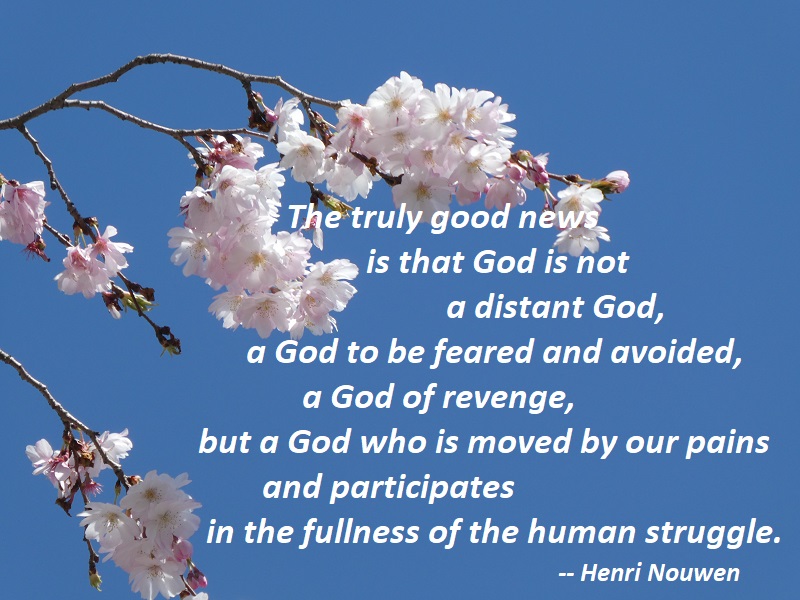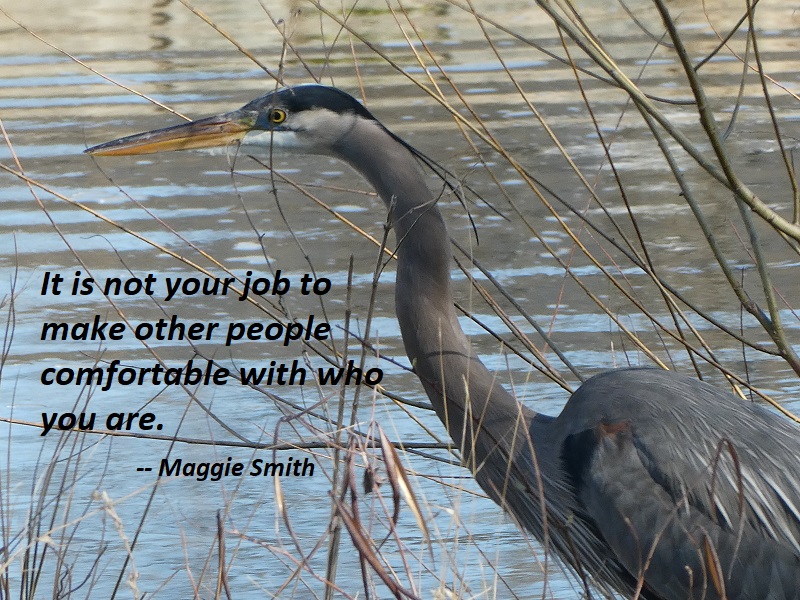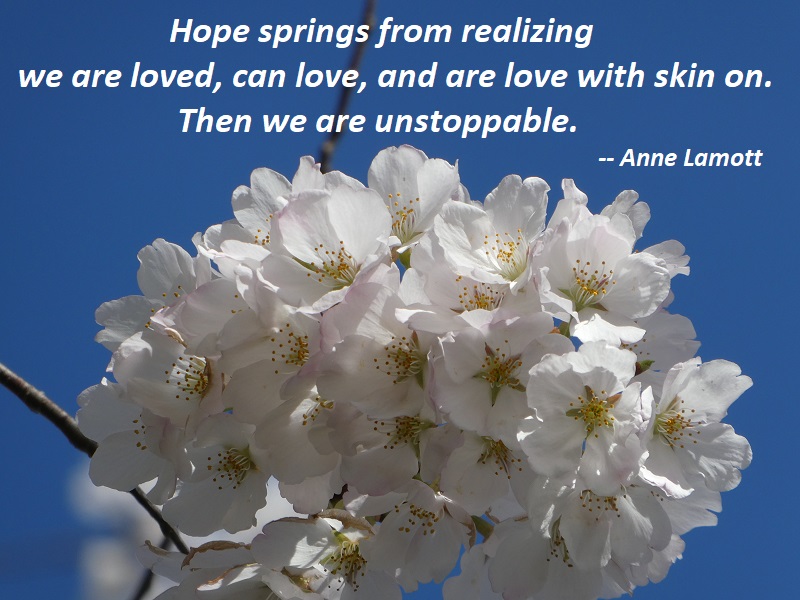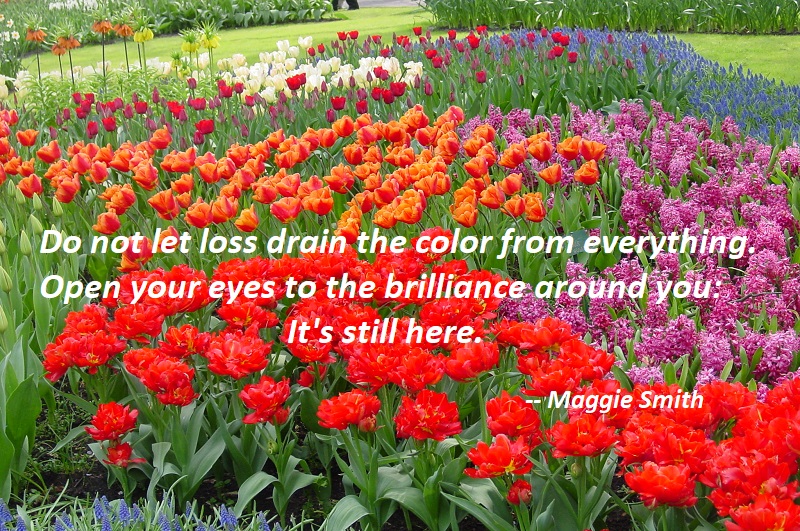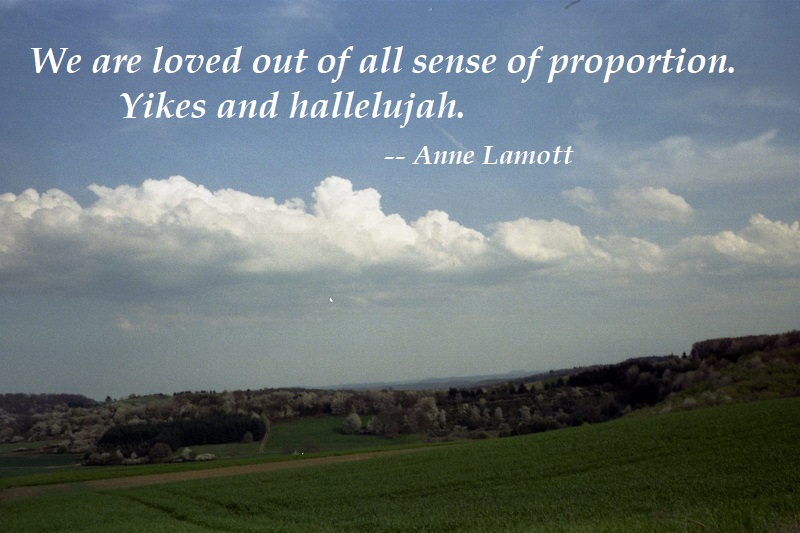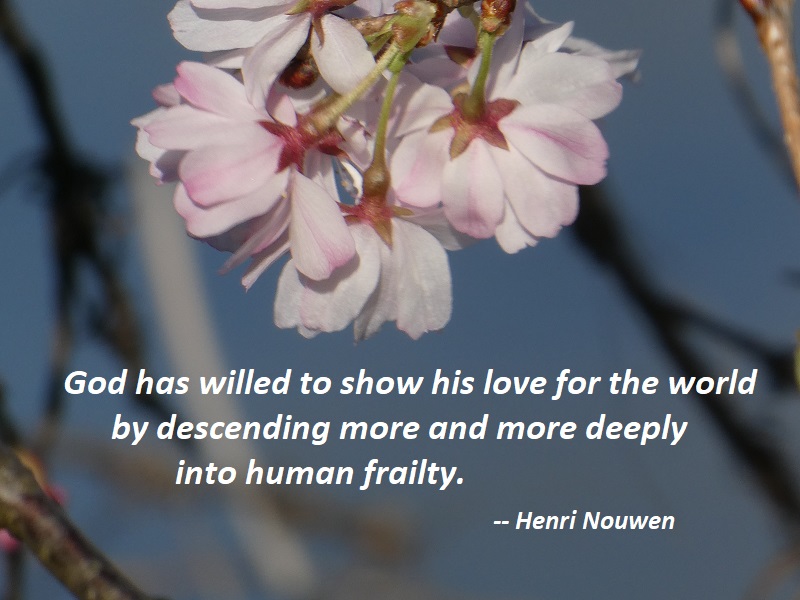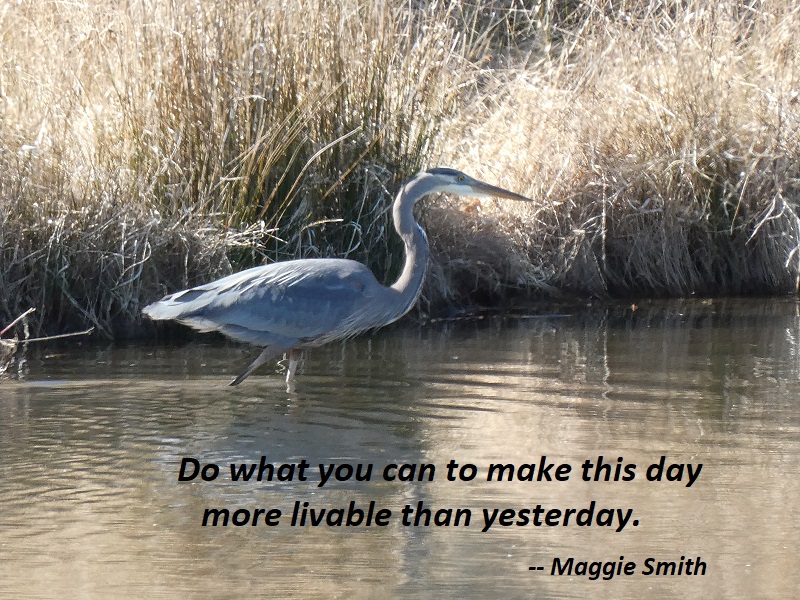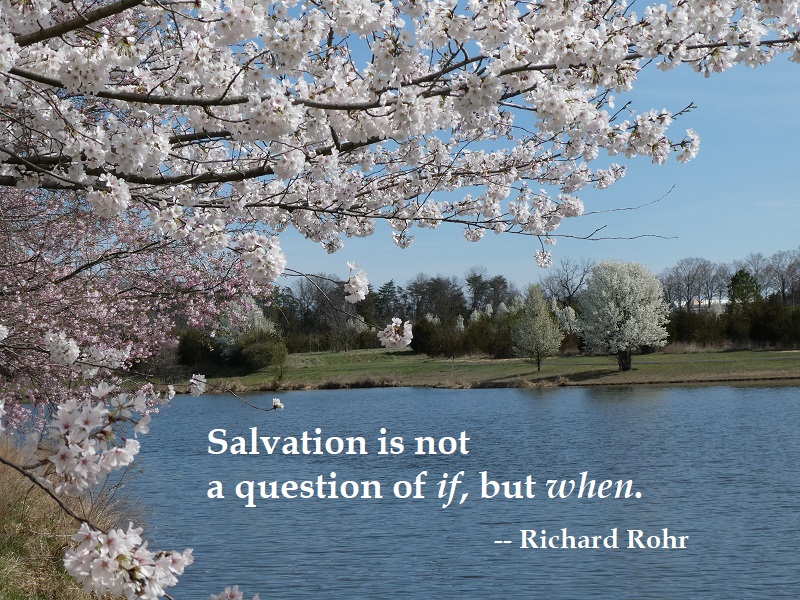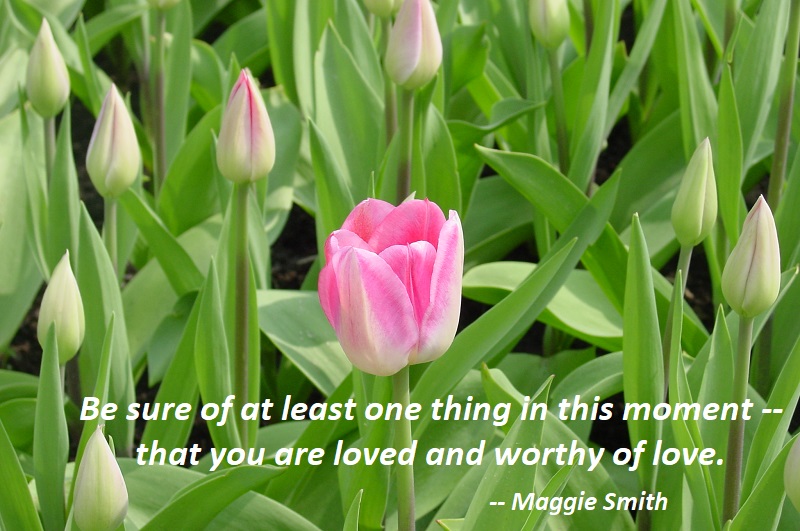Grow Anyway.
It is not your job to make other people comfortable with who you are. Be wary of those who don’t want you to change or grow. Grow anyway — there is no alternative.
KEEP MOVING.
— Maggie Smith, Keep Moving, p. 66
Photo: South Riding, Virginia, March 30, 2021
Love With Skin On
We are being shepherded beyond our fears and needs to becoming our actual selves. This sucks and hurts some days, and I frequently do not want it or agree to it. But it persists, like water wearing through a boulder in the river. Hope springs from realizing we are loved, can love, and are love with skin on. Then we are unstoppable.
— Anne Lamott, Dusk Night Dawn, p. 190-191
Photo: South Riding, Virginia, March 30, 2021
Open Your Eyes.
Do not let loss drain the color from everything. Open your eyes to the brilliance around you: it’s still here.
KEEP MOVING.
— Maggie Smith, Keep Moving, p. 56
Photo: Keukenhof, Holland, April 17, 2004
Love Out of Proportion
Trust me on this: We are loved out of all sense of proportion. Yikes and hallelujah. Love reveals the beauty of sketchy people like us to ourselves. Love holds up the sacred mirror. Love builds rickety greenhouses for our wilder seeds to grow. Love can be reckless (Jesus is good at this), or meek as my dog, or carry a briefcase. Love is the old man in the park teaching little kids to play the violin: much time spent tuning, the children hearing their way into the key he is playing. My parents heard the key as success, security, moving expeditiously, and living as expected. But love lumbers like an elephant, it naps on top of your chest like a cat. It gooses you, snickers, smooths your hair. Love is being with a person wherever they are, however they are acting. Ugh. (A lot of things seem to come more easily to God.)
— Anne Lamott, Dusk Night Dawn, p. 190
Photo: Above Gundersweiler, Germany, April 22, 2000
Gifts of Each Season
Each season has its gifts. What did my life’s hardest season give to me? Most of all, belief in my own ability not only to come back after a long winter but to grow stronger, more alive. Belief that change makes everything possible. Belief in my own spring. In the meantime, thanks to the bare trees, I can see more sky. It’s a beauty emergency — all that blue through the branches.
— Maggie Smith, Keep Moving, p. 55
Photo: South Riding, Virginia, March 27, 2021
God With Us
Again and again you see how Jesus opts for what is small, hidden, and poor, and accordingly declines to wield influence. His many miracles always serve to express his profound compassion with suffering humanity; never are they attempts to call attention to himself. As a rule, he even forbids those he has cured to talk to others about it. And as Jesus’ life continues to unfold, he becomes increasingly aware that he has been called to fulfill his vocation in suffering and death. In all of this, it becomes plain to us that God has willed to show his love for the world by descending more and more deeply into human frailty.
— Henri J. M. Nouwen, You Are Beloved, p. 93
Photo: South Riding, Virginia, March 26, 2021
Get Back Up.
Get back up. Dust yourself off. Remember that you’re playing the long game, and trust that over time, the good days will outnumber the bad. Do what you can to make this day more livable than yesterday.
KEEP MOVING.
— Maggie Smith, Keep Moving, p. 51
Photo: South Riding, Virginia, March 19, 2021
Not If, But When
As I have often said, salvation is not a question of if, but when. Once you see with God’s eyes, you will see all things and enjoy all things in proper and full perspective. Some put this off till the moment of death or even afterward (“purgatory” was our strange word for this). Salvation, for me, is simply to have the “mind of Christ” (1 Corinthians 2:16), which Paul describes as “making the world, life and death, the present and the future — all your servants — because you belong to Christ and Christ belongs to God” (1 Corinthians 3:23).
Everything finally belongs, and you are a part of it.
This knowing and this enjoying are a good description for salvation.
— Richard Rohr, The Universal Christ, p. 225
Photo: South Riding, Virginia, March 22, 2020
Be Sure of This.
Be sure of at least one thing in this moment — that you are loved and worthy of love. Hold tightly to what you know to be real and true and good about who you are. Be sure of yourself.
KEEP MOVING.
— Maggie Smith, Keep Moving, p. 47
Photo: Keukenhof, Holland, April 21, 2004.
